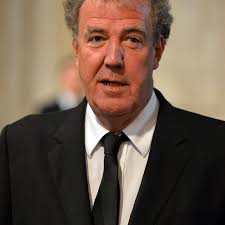The Impact and Controversies of Jeremy Clarkson

Introduction
Jeremy Clarkson is a name synonymous with motoring journalism and television entertainment. Best known for his tenure on the BBC’s ‘Top Gear’, he has captivated audiences with his unique blend of humour, knowledge, and controversial opinions, making him a significant figure in British media. His ongoing relevance is noted, especially with the resurgence of his own show, ‘The Grand Tour’, attracting global viewers and sparking discussions about his polarising persona.
Career Overview
Clarkson’s career started in the early 1980s when he began writing car reviews for various publications. His rise to fame came in 2002, when he joined ‘Top Gear’, transforming the programme into a cultural phenomenon. His charismatic presentation style and knack for storytelling made the show a staple in households around the world. After leaving ‘Top Gear’ in 2015 following a controversial incident with a producer, Clarkson took his brand of entertainment to Amazon Prime with ‘The Grand Tour’, which debuted in 2016 and continues to draw immense viewership.
Recent Controversies
Despite his successes, Clarkson has often found himself at the centre of controversies. Most recently, his comments on social media have sparked outrage, particularly over statements deemed sexist and offensive. In early 2023, he faced backlash for a column he wrote, leading to over 20,000 complaints submitted to the press regulator, IPSO. This incident not only reignited discussions regarding media ethics but also prompted debates on the consequences of inflammatory journalism. Following the fallout, Clarkson issued an apology, yet the incident has had durable effects on his public image.
Future Prospects
Looking ahead, Clarkson remains a polarising figure. While some admire his candidness and wit, others advocate for more responsible public discourse. His upcoming projects are highly anticipated; however, it remains to be seen how his past controversies will affect his future endeavours. The media landscape is evolving, and public sensitivity towards controversial figures is at an all-time high, indicating that Clarkson may need to navigate his career with greater caution.
Conclusion
In conclusion, Jeremy Clarkson epitomises the complexities of contemporary media figures. His impact on automotive entertainment is undeniable, yet his controversies highlight the fine line between free speech and responsible journalism. As audiences continue to consume media content fervently, the ongoing developments in Clarkson’s career will provide significant insights into the changing dynamics of public influence in the digital age.
